About SLA Support
SLAs
2024 Spring Semester Members – Total 41 members
(Mathematics 8, Physics 7, Chemistry 5, Writing 5, English 11, Japanese 5)
Mathematics
| Takayoshi Watanabe (Science, D3) | Kaede Watanabe (Science, D1) | Shuntaro Yoshino (Information, D1) |
| Haruki Ohashi (Science, M2) | Takaki Koshikawa (Engineering, M1) | Haruki Kimura (Engineering, M1) |
| Zou Xiaocheng (Science, B4) | Yuta Nishibuchi (Science, B4) |
Physics
| Yoshihisa Suzuki (Science, D2) | Rikuto Yasuda (Science, D2) | Tsubasa Sugeno (Engineering, M2) |
| Koya Chiba (Science, M1) | Kohki Amemiya (Science, M1) | Kazutoshi Oka (Engineering, B4) |
| Touma Okada (Science, B3) |
Chemistry
| Yuto Nakajima (Science, D2) | Wataru Kikuchi (Agriculture, M2) | Yuto Unaki (Engineering, M1) |
| Ryoma Kawaoto (Science, M1) | Kota Matsumoto (Science, M1) |
Academic writing
| Shoei Hattori (Engineering, D3) | Mari Nonose (Arts and Letters, D3) | Nanae Moriya (Education, D2) |
| Mizuki Sakamoto (Arts and Letters, D2) | Miki Tezuka (Arts and Letters, D1) |
English conversation
| Zhang Xinyu (International Cultural Studies, D2) | Airi Chikamori (Arts and Letters, D2) | Chisato Makishima (Arts and Letters, D2) |
| Ding Jiahui (International Cultural Studies, M2) | Yukihi Hara (Engineering, M1) | Takashi Sano (Engineering, M1) |
| Kaloyan Emilov Bogdanov (Education, B4) | Hiroki Nemoto (Arts and Letters, B4) | Tatsuma Yamauchi (Engineering, B4) |
| Daichi Oyama (Agriculture, B4) | Jun Ishiguro (Engineering, B3) |
Japanese conversation
| Satone Komoriya (Arts and Letters, D1) | Shohei Suzuki (Arts and Letters, D1) | Ayu Otsu (Engineering, M1) |
| Moeka Sato (Arts and Letters, B3) | Tasuku Ishii (Engineering, B3) |

SLAs’ Messages
Expanding the “world of mathematics” with us
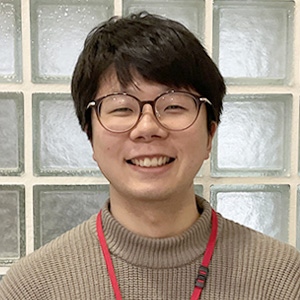
OHASHI Haruki (SLA of Mathematics)
Master course 2nd year, Graduate School of Engineering
Mathematics from university may seem quite different from mathematics up to high school, as definitions become more abstract and the language is somewhat unfamiliar. But, the effective way to cope with this is the same as before: it is important to get acquainted with mathematical concepts through setting up concrete problems and carefully following their outlines in your own mind. In the process of doing so, you will probably encounter many examples that betray your mathematical intuition that you have somehow had up to now. As you steadily collect such examples and modify your mathematical intuition, you will find that the world of mathematics within you has expanded considerably.
The fun part of university is that you don’t have to go through the above training alone. The impression of definitions and theorems, which used to seem tasteless and spellbinding, changes drastically as you discuss the same problems with like-minded colleagues gathered at the same university, and in an instant, they begin to take on color and liveliness. In the face of such impressions, it does not matter whether we are a classmate, a senior, or a junior. SLAs of various grades and specialties are waiting for you in the M building. Please feel free to bring your textbooks, reference books, lecture notes, and problems you do not understand.
Knowing what you don’t know
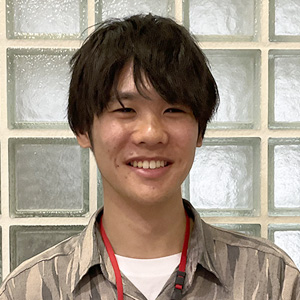
UNAKI Yuto (SLA of Chemistry)
Master course 1st year, Graduate School of Engineering
When you were in high school, you all used roughly the same textbooks and learned roughly the same content. Once you get to university and get a little more specialized, the content written in different textbooks varies quite a bit. After studying “Chemistry A” in my first year, I wanted to learn more, so I went to the library and read a book on quantum chemistry. However, at the time I was reading a textbook that was quite difficult for me to read on my own, and I had an experience of falling behind almost immediately. So, instead of starting with difficult mathematical formulas, I read thin technical books first to get the big picture, and then read textbooks that were a little more detailed. In this way, I was able to clarify what I did not understand, and gradually began to understand the parts that had been blurring my understanding.
When you read a textbook, you are sure to hit a part you cannot understand. The important thing is to understand where you are having trouble. Once you know what you don’t know, you can take countermeasures, such as reading a textbook that describes the problem in more detail. If you need help sorting out your study problems, or if you are having trouble understanding them on your own, please stop by SLA at that time.
Report is the first step to research
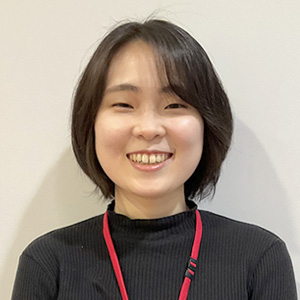
NONOSE Mari (SLA of Writing)
Doctoral course 3rd year, Graduate School of Arts and Letters
When I entered the Faculty of Arts and Letters at Tohoku University, SLA was not yet in place, and I spent my days working on assignments while consulting with students taking the same courses. As an undergraduate student, I was not very interested in the completeness of my reports, and I think some of the reports I submitted included items that I never wanted to look over again. It is a shameful past, but more than that, I feel that it was “a waste of time.”
I am currently enrolled as a doctoral student in the Graduate School of Arts and Letters. In preparing my research plan, I try to set a clear “question” and a tentative “answer.” I define the “question” as an unresolved question that came to mind after reading previous research, search for ways to solve the question, and anticipate the “answer” that will be obtained by following these steps. The more clearly this process is written, the more persuasive the research can be presented. The reports you work on as an undergraduate are often the best assignments to practice this.
Both reports and research plans are reader-driven, so it is important to have others critique your work in order to improve its completeness. If you encounter any problems during the writing process, do not hesitate to ask friends or SLAs for help. I am sure you will have a meaningful time.
Giving your university life a theme
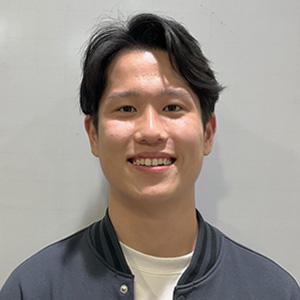
NEMOTO Hiroki (SLA of English)
Undergraduate course 4th year, Faculty of Arts and Letters
Our campus is filled with numerous opportunities that will bring you into contact with new people and knowledge. But, since the time at your disposal during your university life is limited, you may have to make choices at times. At such times, I recommend that you have a theme for your university life and use it as the basis for your decision. In my case, I had two themes, “international exchange” and “gender,” and used them as clues to make choices when I was not sure what I should do. Thanks to this, I have been able to spend my university life in a consistent manner, including exchange programs, activities in gender-related student organizations, and volunteering to support international students. I believe that these efforts will eventually lead me to hone my own unique “weapons” that will be useful in the future.
I have heard that the university years are a precious time when you can delve into your own interests at will. I encourage you to cherish the seeds of interest in your mind that “sound interesting” or “I want to try it,” and dive into a new world! SLA and other senior students are always there to gently push your back!
Valuing meeting various people
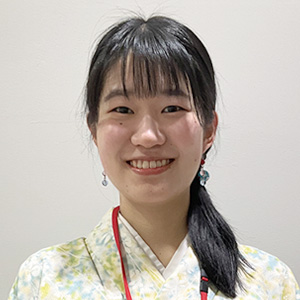
KOMORIYA Satone (SLA of Japanese)
Doctoral course 1st year, Graduate School of Education
In university, you can choose what you want to learn and what you want to do. Because of the greater freedom than in high school, I was puzzled by the number of choices available to me. I did not have a concrete vision of what I was interested in and what I wanted to be in the future. In the university’s life, I took a variety of classes regardless of my major. I also tried part-time jobs. There were times when I was so involved in clubs that I neglected my schoolwork. I spent the entire four years of my undergraduate studies, taking the long way around, and finally found what I wanted to do. This was not done through the accumulation of experience alone. I was able to learn more about myself through meeting and talking with many different people.
SLA is a senior member close to you. When you have a problem, are unsure about something, or don’t know what you don’t know, we can think together to help you about them. You can always rely on your seniors. I would be happy if you could keep them in a corner of your mind so that you can remember the presence of us when you need them. I look forward to meeting you all.
Center Staff
Center Members
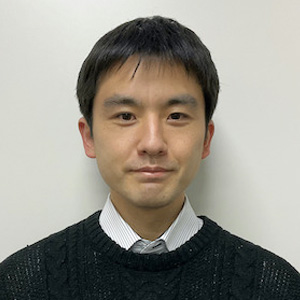
Ryo Sawada (Assistant Professor, Institute for Excellence in Higher Education, Educational Informatics)
I believe you can gain new insights by talking with us. Let’s enjoy learning together!
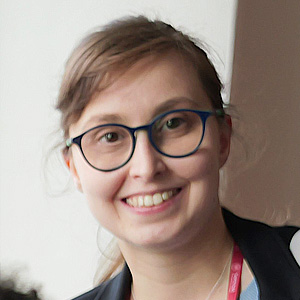
Elena Fabbretti (Assistant Professor, Institute for Excellence in Higher Education, Japanese Literature and Arts)
Is studying difficult? Not so much if we do it together! Please feel free to visit us!
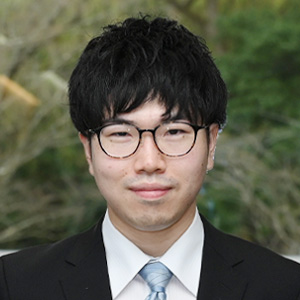
Kohei NISHIZUKA (Specially Appointed Assistant Professor, Institute for Excellence in Higher Education, Pedagogy and Educational Assessment)
From “I have to” to “I want to learn more”. Why don’t you join SLA and experience immersing yourself in learning in an enjoyable way? Please feel free to come and join us!
Masako SASAKI (Administrative staff, Educational Affairs Division, Education and Student Support Department)
What is SLA? Come to M-building to find out!
Vice director
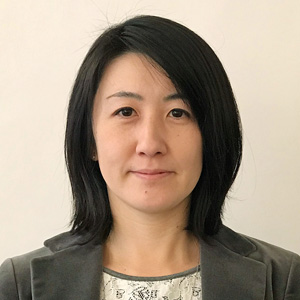
Tomoko SATO (Associate Professor, Institute for Excellence in Higher Education and Student Support, Lifelong Learning and Social Education)
Don’t end up learning by yourself, but share the joy of learning with others!
Director
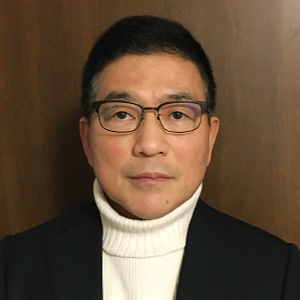
Mitsuru HAGA (Professor, Institute for Excellence in Higher Education and Student Support, Eurasian Continental Archaeology)
Humanity has prospered, not because we have won the “law of the jungle”, but because of our strategy of “Tomosodachi”, which is to cooperate while respecting each other’s individuality. So, for now, please come to the Center!

